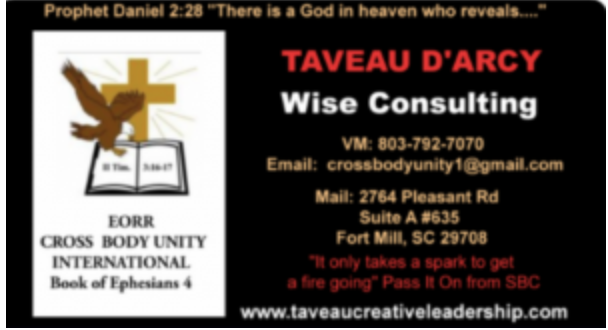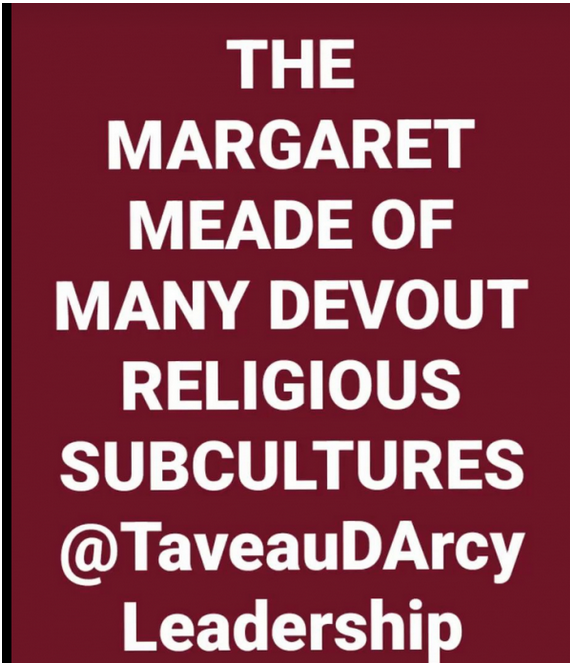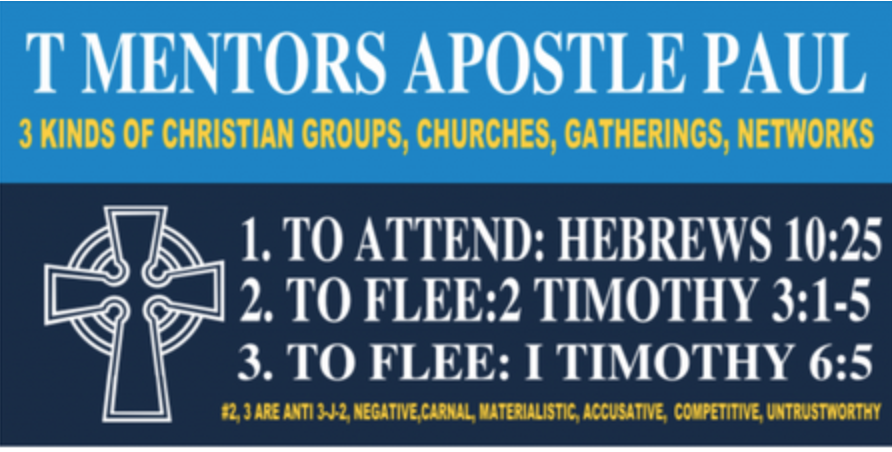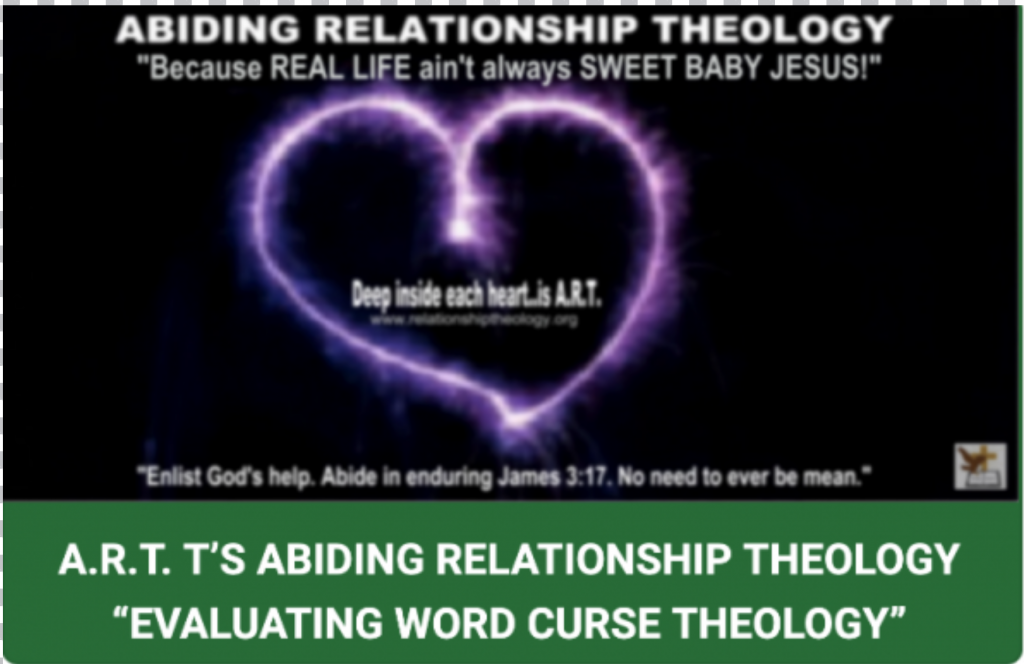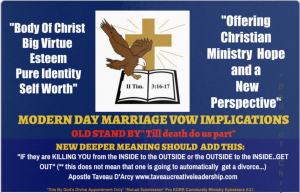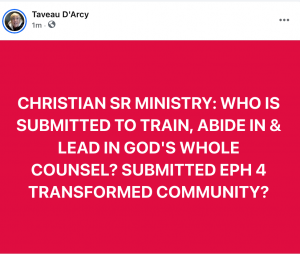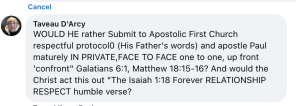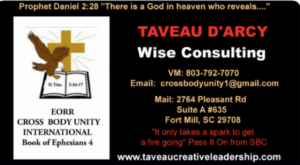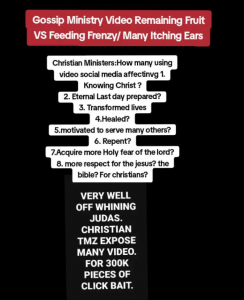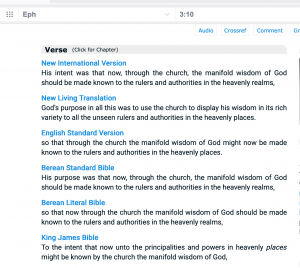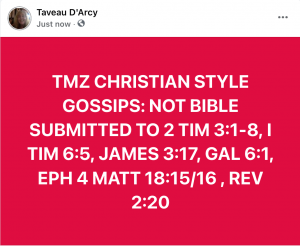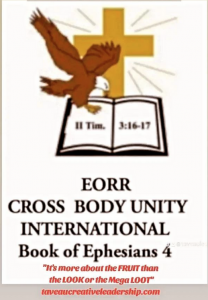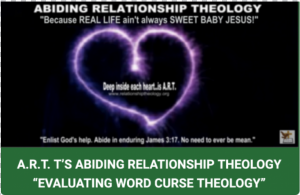
“MINISTRY AI AND I
UNKNOWN BIBLE PROPHETS
WE MAY HAVE MISSED
“Walking it out in Real Life, Serving, Ministering.. as Before An Audience of (The) One”
MY TOP TWO UNKNOWN, LESSER KNOWN PROPHETS (these are basically ‘unknown” by Christian masses..Also that I teach on most of these in far more deep depth, as a Child of Issachar; The ones I most refer to, train from are rather, plus these ISAIAH, OBADIAH, (in the Old Testament) then THESE 2 following
1.the unknown true prophet SENT to ELI at the time prior to
“what I have named as “THE ICHABOD” (cleansing, ministry removing)
2. the leader Amos who was not trained to be a “Hebrew prophet”but was working in the fields..and
rather it was placed upon Him by the Holy Spirit Power of God.
God vs Celebrity Ministry Followers ” Views” of Office Ministry Supernatural Gifts
(C)2024 Taveau D’Arcy All copyrights reserved under international copyright laws, in conjunction with AI
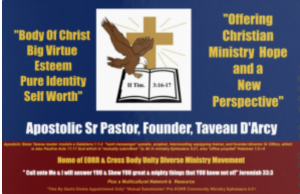
FIRST PART (A Prequel) And with His Love…From Sr Prophet, Sister T
PROPHETIC ENCOURAGEMENT FOR ANY UNKNOWN, BEING MILLED AND SIFTED, EVER WAITING, YET SINCERE “TRUE PROPHET”
Think of Noah
(125 years building, waiting, being accused of any number of things, by family, society, even the devil accusing himself to himself)
We won’t even attempt to describe Jeremiah..much deep intrigue..However, I recall him mostly for one my past favorite life changing verses : Jeremiah 33:3 (find it yourself) way back when I first encountered the Lord’s direction..at age 17
New Testament Apostle Paul
Ephesians 3:10 “To the intent that now unto the principalities and powers in heavenly places might be known by the church the manifold wisdom of God,” ***
**This can mean, “you need to obey what’s in the Bible, but also the Voice of the Good Shepherd, remembering servant leader apostle “off scouring” imprisoned Paul who remarked 3 CRAZY TYPES OF THINGS in light of ‘Christian submission to a certain kind of authority ” often , leader Pharisee strict thinking, teaching:
**”I did not confer with flesh and blood ” (be sure to Google , try that famous Pauline Passage and see the context)
**”Work out your own salvation with fear and trembling” Philippians 2:12
**”From such away 2 types of abusive, subcultures 2 Timothy 3:1-8; I Timothy 6:5
** As a Galatians 2:1-2 God formed, fashioned after he was officially CALLED then SENT
PS there are surely more, but no time, now!
REMINDER: The Narrow Way is often viewed as the “off” “errant non Bible method Way”

NEXT WE START SISTER T ASKING CHAT GPT AI :
Apostle Taveau said:
Unknown prophets in the Bible that were called out during times of great national crisis such as Amos and the men in 1 Samuel 4. Many more.
ChatGPT said:
The Bible highlights several lesser-known prophets who were called by God during times of national crisis. These individuals often played critical roles in delivering God’s messages to His people, even if they are not as prominently discussed as figures like Isaiah or Jeremiah. Here are a few examples:
THIS IS THE FIRST TD MAIN POINT “AMOS” (TD has gone into Amos(not being trained among the Hebrews) seems to be an encouragement for the many ‘unknown, not seen” auththentic prophets today.. To the writer, after deeply evaluating, Amos, not being known as “the prophet” strikes a similarity this NOW “servant leader, no showbiz” and “fear of the Lord, Godly remnant NOW INCREASING REAL MOVE. Therefore (to this person) is appears similar to NOW TODAY on the American Seen. seeming importance, deeper, but Chat GPT online scratches the basic surface
1. Amos
Background: Amos was not a professional prophet but a shepherd and a dresser of sycamore figs (Amos 7:14-15).
Context: He prophesied during a time of national prosperity in Israel but warned of impending judgment due to social injustice, idolatry, and moral corruption.
Message: Amos condemned the complacency of the wealthy and called for justice to “roll down like waters” (Amos 5:24).
2. The Man of God in 1 Kings 13
Background: This unnamed prophet was sent from Judah to rebuke King Jeroboam for his idolatry at Bethel.
Context: Jeroboam had set up golden calves as alternative centers of worship, leading Israel into sin.
Message: The prophet predicted the destruction of Jeroboam’s altar and the coming of King Josiah, who would reform Israel (1 Kings 13:1-10).
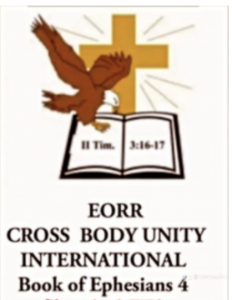
*** THIS IS THE TD SECOND BIG POINT: NAMELESS, FACELESS PROPHET “SENT TO ” ELI. IN I SAMUEL
“THE UNKNOWN PROPHET IN THE DAYS OF BOYS WILL BE BOYS SR MINISTRY
3. The Prophet in 1 Samuel 2-4
Background: An unnamed “man of God” was sent to rebuke Eli, the high priest, for the sins of his sons, Hophni and Phinehas.
Context: Israel was in spiritual and moral decline, and the priesthood was corrupt.
Message: The prophet warned Eli that his lineage would lose the priesthood and that God would raise up a faithful priest (1 Samuel 2:27-36).
4. Nathan
Role: Though more widely recognized, Nathan often spoke during pivotal moments of crisis.
Example: Nathan confronted King David after his sin with Bathsheba and pronounced God’s judgment (2 Samuel 12:1-15).
THIS IS A WOMAN: 5. Huldah
Role: A prophetess consulted during King Josiah’s reign.
Context: When the Book of the Law was rediscovered, Huldah confirmed that the nation would face judgment for its sins but promised mercy during Josiah’s reign (2 Kings 22:14-20).
6. The Sons of the Prophets (1 Samuel 10:5; 2 Kings 2:3-7)
Role: These were groups of prophetic disciples who served during the ministries of Samuel, Elijah, and Elisha.
Context: They provided support and prophetic insight during times of national upheaval, such as the division of the kingdom.
7. The Prophet in 2 Chronicles 20 (Jahaziel)
Background: Jahaziel, a Levite, gave a prophetic word to King Jehoshaphat during a military crisis.
Message: He assured the king that “the battle is not yours but God’s” and instructed them to march out in faith, leading to a miraculous victory (2 Chronicles 20:14-22).
8. The Prophets of Obadiah
Background: Obadiah, a servant in King Ahab’s court, hid 100 prophets in caves to protect them from Jezebel’s persecution.
Context: These unnamed prophets represent a remnant faithful to God during a time of national idolatry and oppression (1 Kings 18:4).
9. Micah
Role: Micah, a minor prophet, spoke against social injustice and the corruption of leaders.
Message: He called for repentance and foretold the coming of the Messiah (Micah 5:2).
Conclusion
The Bible records numerous prophets, both named and unnamed, who rose during critical periods to challenge leaders, rebuke sin, and call God’s people to repentance. These individuals often appeared in moments of great spiritual or national crisis, emphasizing God’s sovereignty and justice.

Taveau said,
I would like for you to give more details or additional examples.
ChatGPT said:
Here are additional examples of lesser-known prophets and prophetic figures in the Bible who were pivotal during times of crisis:
10. The Prophet in Judges 6 (Unnamed)
Context: Before calling Gideon to deliver Israel from the Midianites, an unnamed prophet delivered God’s rebuke to the Israelites.
Message: The prophet reminded the people of God’s deliverance from Egypt and condemned them for their disobedience and idolatry (Judges 6:7-10).
Significance: This message set the stage for Gideon’s leadership and God’s intervention.
11. Shemaiah
Context: Shemaiah was a prophet during the reign of Rehoboam, Solomon’s son.
Crisis: After Rehoboam’s harsh policies led to the division of the kingdom, Shemaiah warned him not to fight against the northern tribes.
Message: He declared, “This is what the Lord says: ‘You shall not go up to fight against your brothers…’” Rehoboam heeded the warning, avoiding further bloodshed (1 Kings 12:22-24).
12. Hanani
Context: Hanani rebuked King Asa of Judah for relying on the king of Aram instead of trusting God during a military threat.
Message: Hanani declared judgment for Asa’s lack of faith, saying, “For the eyes of the Lord range throughout the earth to strengthen those whose hearts are fully committed to him” (2 Chronicles 16:7-9).
Outcome: Asa reacted angrily, imprisoning Hanani, but the prophet’s boldness remained an enduring example of faithfulness.
13. Micaiah Son of Imlah
Context: Micaiah prophesied during King Ahab’s reign in Israel.
Crisis: Before a joint military campaign with King Jehoshaphat, Ahab sought counsel from 400 prophets who falsely assured victory. Micaiah, however, predicted defeat and Ahab’s death.
Message: Micaiah’s vision of a lying spirit deceiving Ahab’s prophets (1 Kings 22:13-28) highlighted God’s sovereignty over human affairs.
Outcome: His prophecy was fulfilled when Ahab was killed in battle.
14. Uriah
Context: Uriah, a prophet contemporary with Jeremiah, prophesied against Jerusalem and its leaders.
Crisis: Like Jeremiah, he warned of destruction because of Judah’s sins.
Outcome: King Jehoiakim had Uriah executed for his message, showing the severe opposition prophets often faced (Jeremiah 26:20-23).
15. Haggai
Context: Haggai ministered during the rebuilding of the Temple after the Babylonian exile.
Message: He exhorted the returned exiles to prioritize rebuilding the Temple instead of focusing on their personal comfort (Haggai 1:1-15).
Significance: Haggai’s leadership and encouragement spurred the people to complete the work, demonstrating God’s faithfulness.
16. Zechariah (Son of Jehoiada)
Context: Zechariah, a priest and prophet, rebuked King Joash for forsaking God and worshipping idols.
Message: He declared that Judah would face judgment for abandoning the covenant.
Outcome: Joash ordered Zechariah’s execution, fulfilling the tragic cycle of rebellion and punishment in Judah’s history (2 Chronicles 24:20-22).
17. Eliezer Son of Dodavahu
Context: Eliezer prophesied during King Jehoshaphat’s reign in Judah.
Message: He condemned Jehoshaphat’s alliance with Ahaziah of Israel, a wicked king, declaring that their joint ventures would fail.
Outcome: As foretold, their fleet was destroyed, underscoring the danger of ungodly alliances (2 Chronicles 20:35-37).

OBADIAH:
TD PERSPECTIVE .THUS BEGAT MONEY MAD TEMPLE PRIESTHOOD (persons who were not “ the Godly remnant) (my apostolic NON gainsaying “theory ” ) “perceived as ” AN ALERT FROM THE PROPHET OBADIAH”**
**NOTE This looks like THIS MIGHT BE WARNING ABOUT A ‘MONEY AND PERKS AS KING” surfacing in the big ministry grass roots.. major in God’s ministry people “the hireling Esau family mixture” (but this is MY doing much detective work, so CHAT AI will state this).so more about that (directly from me) but later on
18. Obadiah
Context: Obadiah prophesied against Edom for its role in aiding Babylon during Judah’s fall.
Message: His short but powerful book (the smallest in the Old Testament) warned of God’s judgment on Edom and foretold the restoration of Israel.
Significance: Obadiah’s vision reinforced God’s justice and sovereignty over all nations.
19. Prophet in 2 Chronicles 25 (Unnamed)
Context: During King Amaziah’s reign, an unnamed prophet warned him against hiring mercenaries from Israel to fight his battles.
Message: The prophet assured Amaziah of God’s power to give victory without the aid of Israel. Amaziah obeyed, though reluctantly (2 Chronicles 25:5-10).
Outcome: Amaziah’s victory affirmed the truth of the prophet’s words.
20. The Elders in Ezekiel 8-11
Context: Ezekiel was shown visions of idolatry practiced by elders in the Temple, including unnamed leaders responsible for Israel’s corruption.
Significance: These leaders symbolized the broader national rebellion against God, and Ezekiel’s prophecies warned of the coming exile.
These prophets, though often overlooked, played vital roles in guiding, warning, and sometimes rebuking God’s people during critical moments. Their stories emphasize themes of faithfulness, courage, and the power of God’s Word in times of crisis.

Sister Taveau said,
Please list some more examples or insights!
ChatGPT said:
Here are additional lesser-known prophets and prophetic figures from the Bible, each with a significant role in times of crisis or spiritual upheaval:
21. The Young Prophet from Judah (1 Kings 13)
Context: This unnamed prophet was sent by God to confront King Jeroboam at Bethel for his idolatrous practices.
Message: He prophesied the destruction of Jeroboam’s altar and the future reforms of King Josiah.
Outcome: Despite his courage, the young prophet disobeyed God’s direct command to leave Bethel immediately and was killed by a lion. His story serves as a sobering reminder of the importance of obeying God’s word completely (1 Kings 13:1-34).
22. Ishmael (Jeremiah 41)
Context: After Jerusalem’s fall, Gedaliah was appointed governor by the Babylonians. Ishmael, a member of the royal family, conspired to assassinate him.
Prophetic Connection: While Ishmael’s story itself doesn’t involve direct prophecy, his actions fulfilled Jeremiah’s warnings about the instability and rebellion that would follow Judah’s defeat (Jeremiah 40-41).
23. The Prophets Who Encouraged the Temple Rebuilding (Ezra 5)
Key Figures: Haggai and Zechariah.
Context: After the exiles returned to Jerusalem, opposition halted the rebuilding of the Temple.
Message: Haggai and Zechariah encouraged the people to resume construction, assuring them of God’s favor and ultimate victory over their enemies.
Outcome: Their encouragement led to the completion of the Temple, demonstrating the power of prophetic guidance during crisis (Ezra 5:1-2; Haggai 1-2; Zechariah 1-8).
24. The Seer Gad (2 Samuel 24:11-14)
Context: Gad was a prophet during King David’s reign.
Crisis: After David sinned by ordering a census, Gad delivered God’s judgment, giving David the choice of three punishments.
Significance: Gad’s role as David’s seer highlighted the importance of seeking God’s guidance and submitting to His discipline.
25. Jeduthun (1 Chronicles 25:1-3)
Role: Jeduthun was a musician and prophet appointed by David to lead worship.
Significance: Although not a traditional prophet delivering oracles, Jeduthun’s inspired songs of praise and prophecy brought spiritual insight and encouragement during times of national and personal reflection.
26. The Prophets of Ahab’s Time
Key Figures: The unnamed prophets hidden by Obadiah.
Context: During Queen Jezebel’s persecution, Obadiah protected 100 prophets by hiding them in caves.
Significance: These prophets likely played a crucial role in preserving God’s word and encouraging faithfulness among the remnant in Israel (1 Kings 18:4, 13).
27. Azariah Son of Oded (2 Chronicles 15:1-8)
Context: During King Asa’s reign, Azariah delivered a message of encouragement and warning.
Message: He called Asa and Judah to remain faithful to God, promising blessings for obedience and warning of trouble for forsaking Him.
Outcome: Asa responded by initiating widespread reforms, removing idols, and renewing the covenant with God.
28. Joel
Context: Joel’s prophecy came during a devastating locust plague, symbolizing God’s judgment.
Message: He called for repentance, warned of the coming “Day of the Lord,” and promised restoration and the outpouring of God’s Spirit (Joel 2:28-32).
Significance: Joel’s prophecy was fulfilled at Pentecost (Acts 2:16-21), demonstrating the continuity of God’s redemptive plan.
29. Prophet in 2 Kings 9 (Unnamed)
Context: This unnamed prophet, sent by Elisha, anointed Jehu as king of Israel.
Message: He declared Jehu’s mission to destroy Ahab’s dynasty and eliminate Baal worship.
Outcome: Jehu’s actions, though controversial, fulfilled God’s judgment against Ahab’s house and Jezebel (2 Kings 9:1-13).
30. Ahijah the Shilonite (1 Kings 11:29-39)
Context: Ahijah was a prophet during Solomon’s reign.
Crisis: He foretold the division of the kingdom, tearing a new cloak into 12 pieces to symbolize the split between Israel and Judah.
Message: He informed Jeroboam that he would rule over 10 tribes due to Solomon’s idolatry.
Outcome: His prophecy came to pass, marking a turning point in Israel’s history.
A WOMAN
31. The Wise Woman of Abel (2 Samuel 20)
Context: During Sheba’s rebellion, this unnamed woman negotiated with Joab to save her city.
Prophetic Role: While not a prophet in the traditional sense, her wisdom and quick action reflected God’s intervention in a time of crisis.
Significance: Her actions prevented unnecessary bloodshed and upheld justice.

LAST MAIN PROPHETIC TD POINT MALACHI
32. Malachi (just before 450 silent years in Israel when no “genuine oracle word ” from the Lord was said, (it achieved no Bible canon accepted writings) Selah, not hardcore dogma
Context: Malachi was the last prophet of the Old Testament, ministering after the Temple had been rebuilt.
Message: He addressed the spiritual apathy of the people, rebuking corrupt priests and calling for genuine worship.
Significance: His prophecy concluded with a promise of the coming Messiah and Elijah, paving the way for John the Baptist (Malachi 3:1-4; 4:5-6).
These prophets and figures demonstrate the variety of ways God raised up individuals to lead, warn, and comfort His people during critical moments in history. Let me know if you’d like a deeper dive into any of these or others!
MINISTRY QUESTIONS: crossbodyunity@gmail.com
TO SOW [wpedon id=”1581″]
(C)2024 Taveau Creative Leadership All copyrights reserved under international copyright laws



